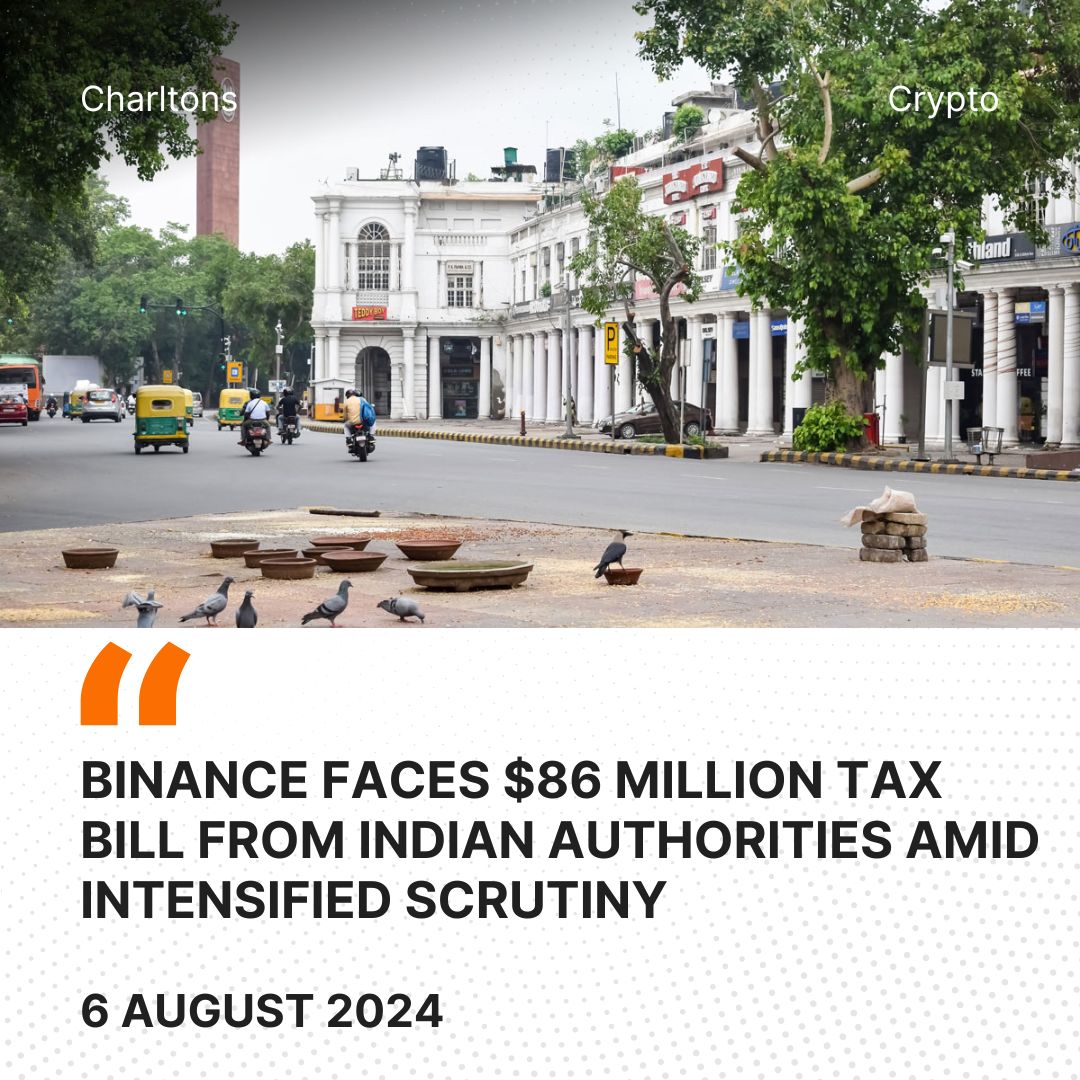
On 5 August 2024, Indian authorities have issued a substantial tax bill to Binance, the world’s largest cryptocurrency exchange. The Directorate General of Goods and Services Tax Intelligence (DGGI) from Ahmedabad has served Binance with a show cause notice demanding $86,033,159 in Goods and Services Tax (GST) for non-compliance issues. This tax recovery notice stems from allegations that Binance collected fees from Indian customers trading in virtual digital assets (VDAs) on its platform without registering under the Indian GST framework, reflecting India’s intensified efforts to bring cryptocurrency operations under its tax regime.
Binance, which holds an estimated 40% market share in the global cryptocurrency market and operates in over 150 countries, now faces increased scrutiny from Indian tax authorities. This latest development underscores India’s assertion of regulatory authority over international crypto platforms serving Indian customers. The timeframe for the alleged tax evasion spans from July 2017 to March 2024. This action by Indian authorities sets a significant precedent for how other countries might deal with global cryptocurrency exchanges operating within their jurisdictions.
A spokesperson for Binance stated, “We are fully cooperating with the Indian authorities to address any concerns. We would like to clarify that Binance is, and has always been, committed to adhering to relevant domestic legislations applicable to us.” Despite this cooperation, the DGGI has initiated an independent investigation separate from the Financial Intelligence Unit (FIU), which earlier this year approved Binance as a registered entity after the exchange was fined approximately $2.2 million in June 2024 for providing services to Indian clients without adhering to anti-money laundering rules.
The DGGI functions under the Ministry of Finance and is tasked with the collection, collation, and dissemination of intelligence related to indirect tax evasion. Their recent actions highlight the Indian government’s broader strategy to regulate and tax cryptocurrency transactions more effectively. This initiative is part of India’s larger effort to establish a comprehensive policy framework for digital assets, a move that involves collaboration between the Reserve Bank of India (RBI), the Securities and Exchange Board of India (SEBI), and other government bodies. Economic Affairs Secretary Ajay Seth recently revealed that a discussion paper outlining the government’s stance on cryptocurrencies is expected to be released before September 2024. This document aims to solicit input from various stakeholders on potential regulations for India’s crypto policy.
Adding to the complexity, Binance has reportedly earned more than $476 million in transaction fees, transferred to a Binance Group company, Nest Services Limited, based in Seychelles. This revelation points to the substantial revenue generated by Binance from its operations involving Indian customers, further complicating its legal and regulatory challenges in the country. The categorization of Binance’s services under Online Information and Database Access or Retrieval Services (OIDAR) highlights the effort to level the playing field between overseas and domestic service providers.
This ongoing scrutiny of Binance is not an isolated incident but part of a broader crackdown on cryptocurrency exchanges operating in India. Recently, WazirX, a prominent Indian crypto exchange, suffered a significant hack resulting in the theft of millions of user funds, highlighting the vulnerabilities within the rapidly growing cryptocurrency market in India.
The DGGI’s show cause notice to Binance, marking the first such action against an international crypto exchange, signifies a pivotal moment in India’s regulatory approach to the digital asset market. As the situation unfolds, the outcome of this investigation and the subsequent legal proceedings will likely shape the future cryptocurrency regulation in India and potentially influence global regulatory practices.





